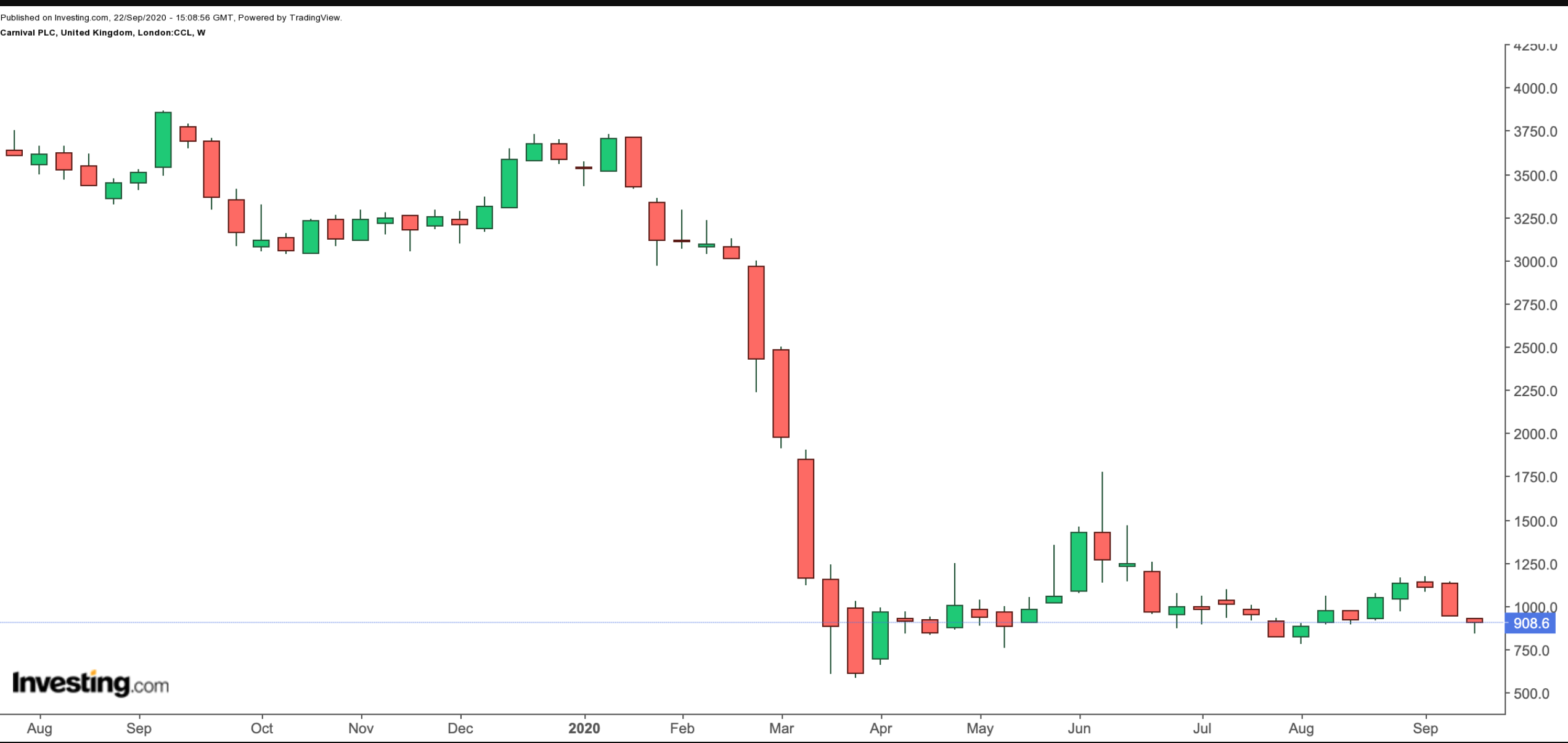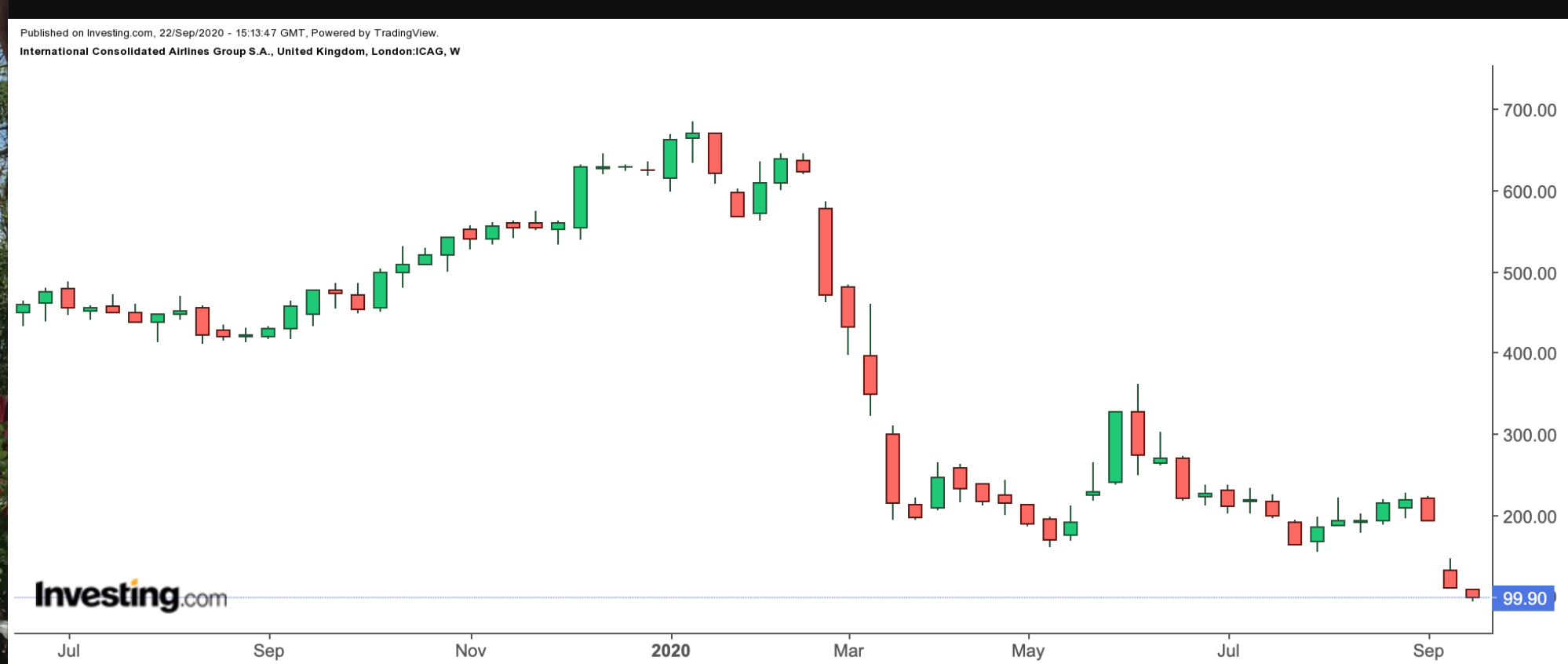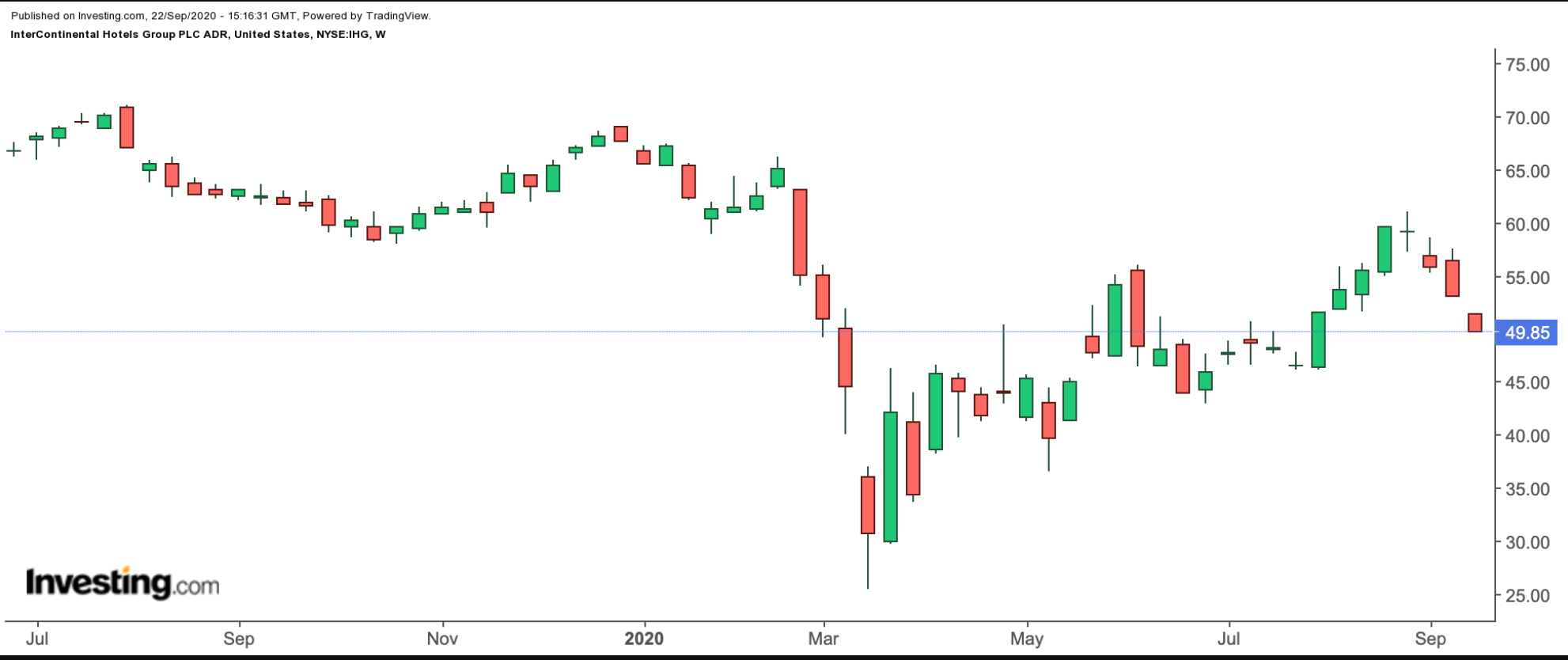Investing.com’s stocks of the week
Investors are well aware of the challenges the pandemic has inflicted the global travel industry. As a result, shares of many companies in the airline, hospitality and other segments of the sector are down 50%-70% from their 2020 highs, seen in the first weeks of the year.
Today, we'll take a closer look at FTSE 250 listed Carnival Cruise Lines (LON:CCL), (NYSE:CCL). We’ll also discuss hotel stocks, including InterContinental Hotels Group (LON:IHG), (NYSE:IHG) and airline shares such as International Consolidated Airlines Group (LON:ICAG), (OTC:BABWF), owner of British Airways, to see if now could be an opportune time to invest in travel stocks.
Travelling In The 'New Normal'
The novel coronavirus has added several phrases to our vocabulary including 'the new normal'. This may, of course, mean different realities for different industries or organizations. For example, for the Federal Reserve Board, it mainly implies an era of record-low interest rates.
A recent study by McKinsey urges businesses to get ready for the "next-normal consumer." It concludes:
"Consumer behaviors will likely fluctuate until we reach the next normal. Companies must rethink how and where they connect with consumers. They should expect to encounter structural challenges and upheaval across multiple dimensions."
The travel industry is working hard to adjust to the new facts of life, while travel remains at depressed levels, especially internationally. In a typical year, tourism generates more than 10% of global GDP.
However, 2020 is no ordinary year. According to the World Economic Forum:
"Up to 120 million tourism jobs are at risk, with the economic damage likely to exceed $1 trillion in 2020 alone. COVID-19 could set the global tourism industry back 20 years.”
Here's how some higher-profile travel companies are faring in these challenging times.
Carnival
The cruise purveyor's shares are dual-listed both in the UK and the US. Until June, it was included on both the S&P 500 and the FTSE 100, the UK's main index.
However, as its share price plunged, it was demoted to the FTSE 250 Index in the UK.

Despite the choppy waters in 2020, Carnival (NYSE:CUK) still remains the world's largest travel leisure company, with a combined fleet of more than 100 vessels across 10 cruise line brands. Before the pandemic, Carnival guests would be able to stop at over 700 ports around the world.
But life for the company has shifted quickly, and drastically. In the US, there is a "no sail order" until Sept. 30. However, cruise operators have voluntarily extended that to Oct. 31. Many analysts expect the official "no sail order" to be further extended, possibly through the end of the year.
Earlier this month, Florida Senators Rick Scott and Marco Rubio introduced a bill, the Set Sail Safely Act, which proposes collaboration between industry stakeholders to get cruises operating again. It is not surprising that Florida is leading the efforts as half of the domestic jobs in the industry are based in the Miami area.
On Sept. 15, Carnival released preliminary financial results for Q3. Adjusted net loss was $1.7 billion. Although CEO Arnold Donald sounded optimistic for the future, the company’s cash-burn rate still remains around $650 million per month.
So far in the year, CCL stock is down about 72%, hovering at 876p ($14 for US-based shares). However, it is up about 50% since the lows hit in early spring.
More than 70% of cruise passengers come from the US and Europe. Unless operations resume close to full capacity in these regions, it would be quite impossible for the company to generate revenues to justify its current stock price. Market participants should not rush to get into CCL stock or its peers Norwegian Cruise Line (NYSE:NCLH) or Royal Caribbean Cruises (NYSE:RCL).
How About Airlines And Hotels?
In addition to cruises, we believe most travel stocks, including hotel and airlines shares, still look quite vulnerable.
For example, shares in International Consolidated Airlines, owner of British Airways, are down close to 80% year-to-date (YTD).

Earlier in September, figures released by Heathrow Airport, the hub for British Airways, showed:
"August passenger demand down 81.5% compared with the previous year, with 1.4 million people travelling via Heathrow—less than a fifth of what is usually seen in the summer getaway."
As a result, Frankfurt has overtaken Heathrow as Europe's busiest airport.
But it is not just the UK-based airlines or airports that are under stress. Recent checkpoint travel numbers announced by the US Transportation Security Administration (TSA) show that on Sept. 20, same weekday "total traveller throughput" was 847,968, down from 2,517,826 in 2019.
Thus, we would not yet load up portfolios with shares of US-based airlines, such as American Airlines (NASDAQ:AAL), Delta Air Lines (NYSE:DAL) or United Airlines (NASDAQ:UAL), either.
Similarly, shares in InterContinental Hotels, which operates 5,656 hotels across nearly 100 countries, have declined more than 25% YTD. The drop is in line with the decline in the Dow Jones US Hotels index, which is down close to 30%.

The group’s brands include InterContinental, Regent Hotels, Crowne Plaza and Holiday Inn among others. On Aug. 11, the company announced half-year H1 results for the period ending June 30. H1 comparable revenue per available room (RevPAR) was down 52% globally. Group total revenue of $1.25 billion was also down 45% down YoY.
Although past economic contractions have shown how resilient economies in the US and many other countries can be, those past experiences do not mean each sector can or will have a strong rebound simultaneously.
Investors should possibly look at other industries to find a range of growth stories that may be emerging sooner rather than later.
